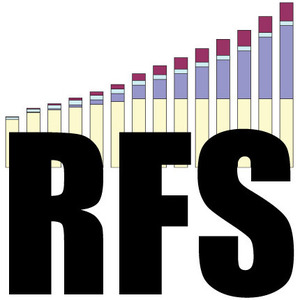Biodiesel supporters to press EPA on renewable fuel standard

June 24, 2015
BY The National Biodiesel Board
Two dozen biodiesel representatives are slated to testify at an EPA hearing June 25 on the agency’s latest proposal establishing volumes under the renewable fuel standard (RFS).
The industry leaders, coming from states across the country, planned to thank the EPA for increasing volumes in the latest proposal while calling for further growth in the final rule set to be released in November.
Bob Morton, co-owner of Newport Biodiesel in Rhode Island and a member of the National Biodiesel Board’s governing board, planned to highlight biodiesel’s success as an advanced biofuel under the RFS and to emphasize biodiesel’s potential for significantly reducing greenhouse gas emissions under the RFS.
“We appreciate that EPA has improved the numbers and that the volumes increase with time; however, the volumes remain well below what the industry can produce and they are far from an aggressive approach to expanding biodiesel production and thereby significantly reducing greenhouse gas emissions,” Morton says in his prepared testimony. “There is little we can do regarding 2014 and 2015, but we can take a more aggressive stance in 2016 and 2017.”
NBB Vice Chairman Ron Marr, director of government affairs at Minnesota Soybean Processors, planned to emphasize the industry’s strong potential for growth with the right policy.
“Our message to EPA is simple,” Marr says in his prepared testimony. “The biodiesel industry has, can and will deliver on the goals of the RFS, particularly those for advanced biofuels. We are poised to expand production and continue building this industry with the right policy signals, but we need stronger biodiesel and advanced biofuels volumes in the final rule to make that happen.”
Made from an increasingly diverse mix of resources such as recycled cooking oil, soybean oil and animal fats, biodiesel is a renewable, clean-burning diesel replacement used in existing diesel engines without modification. It is the first and only commercial-scale fuel produced across the U.S. to meet the EPA’s definition as an advanced biofuel—meaning the EPA has determined that it reduces greenhouse gas emissions by more than 50 percent when compared with petroleum diesel.
Biodiesel falls under the biomass-based diesel category of the RFS, which is a subset of the overall advanced biofuels category. The EPA proposal, which is slated to be finalized in November, would gradually raise biodiesel volumes by about 100 million gallons per year to a standard of 1.9 billion gallons in 2017. Because of biodiesel’s higher energy content, this would count as 2.95 billion ethanol-equivalent gallons under the RFS. The overall advanced biofuel standard would rise to 3.4 billion ethanol-equivalent gallons in 2016. NBB had requested more aggressive growth to a biodiesel standard of 2.7 billion gallons by 2017, along with additional growth in the overall advanced biofuel category.
In its initial proposal in November 2013, the EPA called for holding the biodiesel standard flat at 1.28 billion gallons through 2015—an effective cut from actual annual production in 2013 and 2014 of about 1.8 billion gallons.
Biodiesel is produced in nearly every state in the country and is supporting more than 62,000 jobs. NBB is the U.S. biodiesel trade association.
Advertisement
Advertisement
Related Stories
California’s new specified source feedstock attestation requirement: A critical new compliance step for renewable fuel producers
As of July 2025, California’s SCFS requires renewable fuel producers using specified source feedstocks to secure attestation letters reaching back to the point of origin. This marks a significant shift in compliance expectations.
The public comment period on the U.S. EPA’s proposed rule to set 2026 and 2027 RFS RVOs and revise RFS regulations closed Aug. 8. Biofuel groups have largely expressed support for the proposal but also outlined several ways to improve the rulemaking.
The U.S. renewable fuels industry on Aug. 8 celebrated the 20th anniversary of the Renewable Fuel Standard. Federal lawmakers also marked the occasion with resolutions introduced in the House and Senate earlier this month.
Iowa farmers have a new market opportunity for their 2025 soybean crop. Landus is expanding its Clean Fuel Regulation initiative, made possible by recent policy changes expected to increase Canada's demand for liquid biofuel.
Klobuchar, Moran introduce bipartisan legislation to support biorefineries, renewable chemicals, and biomanufacturing
Sens. Amy Klobuchar, D-Minn., and Jerry Moran, R-Kan., on July 31 announced the introduction of the Ag BIO Act. The legislation aims to update the USDA’s loan guarantee program to better support biorefining projects.
Upcoming Events










